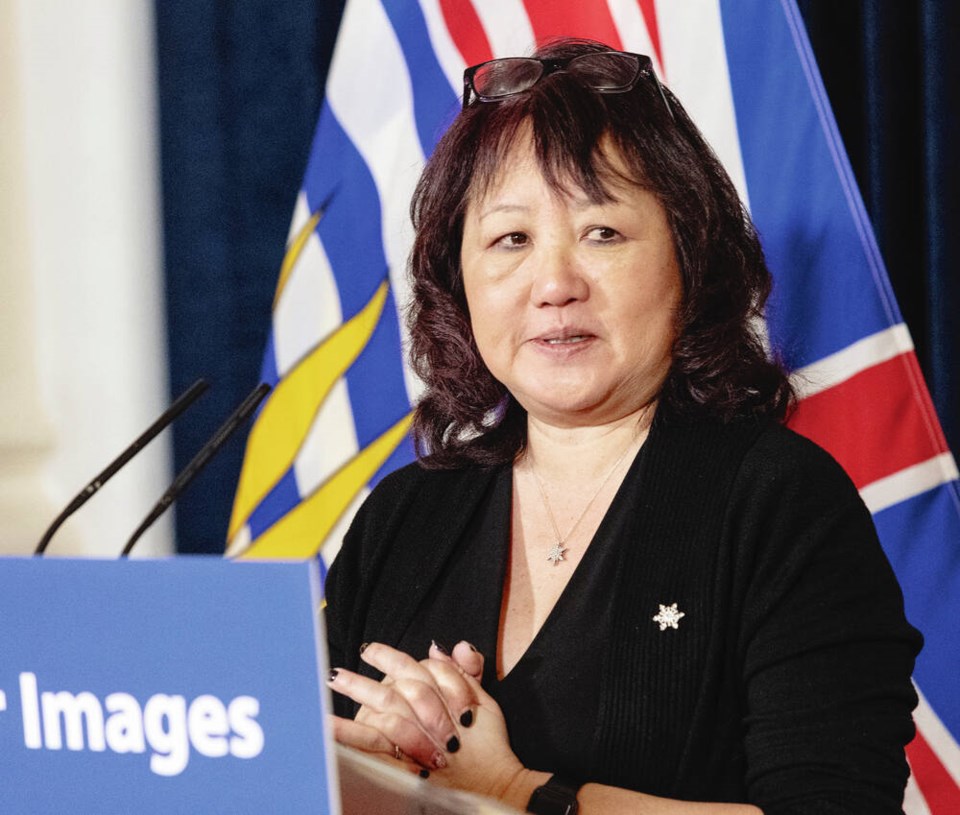If there had been a quick surefire way to shut down the sharing of intimate images of Amanda Todd, maybe she wouldn’t have taken her own life at age 15.
Her privacy was violated by a man in Holland and it prompted horrific bullying by classmates. He shared photos that followed her from school to school as she tried to leave the horror behind and start over. The circulated pictures prompted vile bullying that culminated in her producing a heart-wrenching video a month before she killed herself that told the whole chilling story.
Her determined mother has spent the decade since her daughter’s 2012 death on a campaign to curb sextortion and cyber-bullying. It reached a milestone Monday with the introduction of the Intimate Image Protection Act at the legislature.
The politicians are proud of the bill, but it is going to take a while to see if it works as intended.
The fact that it took 13 years after the first pictures started circulating to produce the bill is not a good sign.
It’s an effort to do an end-run around the legal system and allow victims to get quick practical results, rather than wait years for justice.
The government described it as a fast-track process for getting a legal decision that an image was recorded or distributed without consent.
That’s the relatively easy part.
The hard part is fulfilling the promise made during introduction that it will enable orders to stop people from distributing or threatening to distribute such images.
“The legislation streamlines the process for getting images taken off the internet.”
That is a monumentally difficult task. Whether a provincial government can simplify it is the question that isn’t fully answered at first glance.
B.C. will be mounting this effort by way of the Civil Resolutions Tribunal. It has operated for years as a way to resolve non-criminal disputes and was bulked up a few years ago to take on the huge additional workload of handling some ICBC cases.
If the figures quoted Monday are accurate, it will need to be expanded again to deal with the crush.
Officials said Statistics Canada reported an 80 per cent increase in non-consensual intimate image sharing over a period of five years.
Carol Todd, Amanda’s mother, said the real number is under-reported because of the shame and stigma.
In preparation for the new law, the Civil Resolutions Tribunal is working to expand its online portal.
The bill provides recourse for minors to pursue legal action to stop distribution of their private images and offers a clearer legal avenue for lawsuits to seek damages.
The government hopes the bill will force perpetrators to “make every reasonable effort to destroy all intimate images and remove them from the internet, search engines and all forms of electronic communication.”
There is also the power to order any internet intermediaries, such as Facebook, Instagram or other online platforms to expunge such images.
Since the government cited Facebook as an example, it’s worth noting that three years ago national and provincial privacy commissioners fingered Facebook for breaching the privacy of a half-million Canadians.
The corporation also failed to meet deadlines for answering questions during their investigation and provided incomplete responses.
In the end it disagreed with the findings and rejected the proposed remedies and the commissioners had to admit they were helpless to do anything about it.
Facebook put aside $3 billion to cover potential fines in the U.S. and just carried on.
The bill envisions two new processes available to someone whose privacy has been violated through non-consensual sharing of images.
They can apply through the Civil Resolutions Tribunal for a directive that has the effect of a court order to get the images taken down.
They can also start a more traditional civil action to seek monetary damages.
No fines or penalties are stipulated in the bill. They will be set by regulations later.
Carol Todd said despite the world-wide publicity her daughter’s case generated, the prevalence of exploitation and extortion has increased over the years.
She said one Canadian watchdog agency reports 70 cases of sextortion a week.
Todd said B.C. has now come into line with other provinces in taking steps against it.
The law looks good on paper, but resourcing the agency charged with handling the response will determine if it works in real life.
>>> To comment on this article, write a letter to the editor: [email protected]
